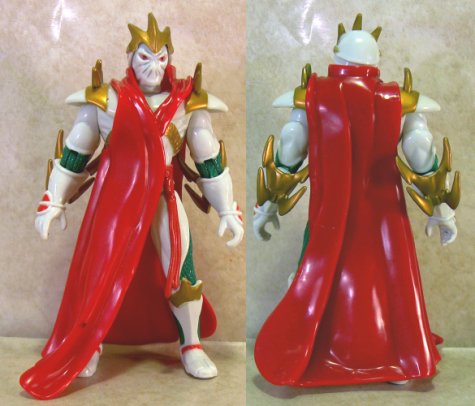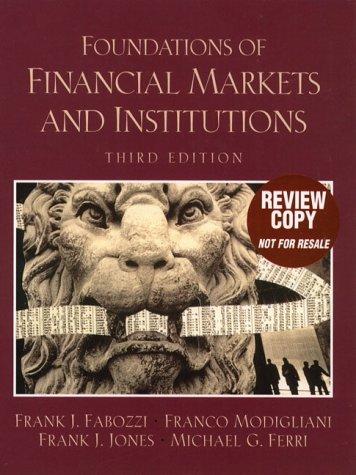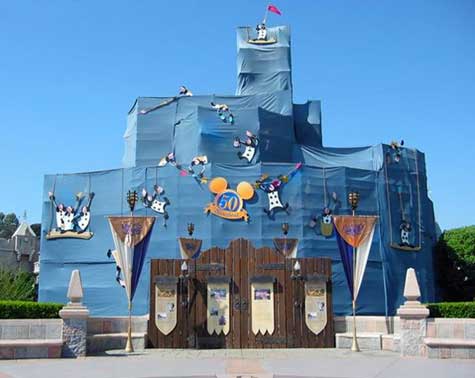What are the Functions of Commercial Bank
Contents:


For savers, the primary benefit of making deposits with commercial banks is the added security their money will have. Banks are backed by FDIC insurance, which guarantees that your deposits are safe regardless of what happens to the bank itself. In addition, interest may also be earned on deposits depending on the type and amount being held, allowing savers to effectively earn passive income over time. You can now conduct your banking activities online or through your mobile device with ease. This includes making payments, transferring funds between accounts and setting up automatic transfers.
It also issues letter of credit, especially in case of import trade. Customers who seek a secure place to store their belongings can use lockers provided by commercial banks. Locker facilities remove the constant risk of theft or loss that comes with keeping things at home.
Commercial banks are profit-based institutions that offer financial services like loans, as well as services like deposits, electronic transfers of funds, etc. to their customers. Commercial banks have a significant role in a country’s economy as these organizations fulfill the short and mid-term financial requirements of industries. Modern commercial banks perform a variety of functions and help the industrialists, businessmen and traders. They keep the wheels of commerce, trade and industry always revolving. Modern commercial banks perform mainly two types of functions i.e. primary or banking functions and secondary or subsidiary functions. A merchant bank is a company that deals mostly in international finance, business loans for companies and underwriting.
The main motive of such banks is to make a profit and hence are also called profit-making institutions. A commercial bank is a financial institution that offers services such as loans, certificates of deposit, savings accounts and overdrafts to its customers. They make money by lending out loans and collecting interest from them. The emergence of digital banking has led to more efficient and convenient services for customers.
The Bank of Calcutta, established in 1806, is India’s oldest commercial bank. It was later renamed the Bank of Bengal, and is now known as the State Bank of India. N increase in margin requirement reduces the Boring capacity as well as money supply where is a reduction in Majid requirement will increase the availability of credit and money supply.
These accounts are generally maintained by businessmen and Industrialists who receive and make business payments of large amounts through cheques. A commercial bank accepts deposits in the form of current, savings and fixed deposits. It collects the surplus balances of the Individuals, firms and finances the temporary needs of commercial transactions. The first task is, therefore, the collection of the savings of the public. They fund loans using the money that their clients deposit in various kinds of accounts.
What are Commercial Banks?
For this service, an annual fee would be charged by the banks. These banks operate outside the territory of India and within a foreign nation. Banks having the main office outside India are called foreign banks. Some examples of foreign banks are American Express, Citi Bank, FirstRand Bank, etc.
Zerodha’s Nithin Kamath on ASBA-like facility for secondary market – Economic Times
Zerodha’s Nithin Kamath on ASBA-like facility for secondary market.
Posted: Fri, 31 Mar 2023 07:00:00 GMT [source]
They combine the features of both current account and fixed deposits. But bank gives this facility with some restrictions, e.g., a bank may allow four or five cheques in a month. Interest paid on savings account deposits is lesser than that of fixed deposit. Meanwhile, it is relevant to note the other types of banks as well, viz. Central Banks, Cooperative Banks, Regional Rural Banks, Local Area Banks, Specialized Banks, Small Finance Banks, and Payment Banks. Among a plethora of banks providing various services, commercial banks are described with two of its characteristics, which is lending and borrowing.
Functions and role of commercial banks in the Indian economy
Demand drafts and Bankers Cheques are issued to public and customers as well. Instead of sending money they can attach these instruments for payment of educational fees, etc. Fixed deposits are also referred to as time deposits as the funds are deposited for a specific time frame. Commercial Banks have both primary and secondary functions that as explained in detail below. It is merely a unit in the banking structure of the country and operates under the control of the central bank. The deposits keep on increasing in each round by 90% of last deposits, similarly, cash reserves also go on increasing its time by 90% of last cash reserve.
These are the commercial banks, which operate commercially for serving the common people. However, loans offered are many times more than the deposits received by banks. The Reserve Bank of India also rediscount bill and provides financial assistance to commercial banks.

Out of this, Rs. 115 crores must be in gold and Rs. 85 crores in foreign securities. The notes issued in excess of Rs. 200 crores are backed by the government rupee securities. A person writing the cheque and having a transaction banking account where their money is held is a drawer. A cheque is an agreement between two individuals or organizations to make a payment.
Private Sector Banks
In the previous articles, we have given How to Transfer SBI Account From One Branch to Another Branch and How to Check SBI Account Balance in different ways. Today we are discussing what are the primary and secondary functions of commercial banks. Commercial banks are the most important components of the whole banking system. The commercial banks provide loans and advances of various forms. It includes an overdraft facility, cash credit, bill discounting, etc.
A Demat account should be opened with Depository Participant and that demat account should be linked with savings bank account by the customer. Then the customer can ask the bank to conduct online purchase or sale of securities, on behalf him. Commercial banks provide locker facilities to customers who want to store valuables safely. Locker facilities eliminate the impending risk of theft or loss, which prevail when kept at home. Short-term loans are usually pledged without any security, offering a smaller loan amount and repayment tenor.
The Reserve Bank of India Act, 1934 & Banking Regulation Act, 1949 have given RBI the power of supervision and control over commercial and co-operative bank. Bearer Cheque refers to a cheque that is payable to whoever presents it rather than to a designated payee. Acts as Trustee and Executor of property of its customers on advice of customers.
Primary Functions
A. Custodian of Cash Reserves- Commercial banks are required to keep a fixed percentage out of the deposits as the reserve is known as cash reserve ratio with Central Bank. The two most distinctive features of a commercial bank are borrowing and lending, i.e. acceptance of deposits and lending of money to projects to earn Interest . The rate of interest offered by the banks to depositors is called the borrowing rate while the rate at which banks lend out is called lending rate. Market makers for corporate, government and municipal bonds may be commercial banks. Through their market-making operations, banks can offer technical guidance, counselling, and advice to issuers. Bill of exchange is drawn by the creditor on the debtor, wherein the amount of debt and the date on which the debt amount becomes payable would be specified.
Schroders to invest $1bn annually to buy secondary private equity – Private Banker International
Schroders to invest $1bn annually to buy secondary private equity.
Posted: Mon, 19 Sep 2022 07:00:00 GMT [source]
Today almost all the countries of the world have their own secondary functions of commercial bankss. A bill of exchange represents a promise to pay a fixed amount of money at a specific point of time in future. It can also be encashed earlier through discounting process of a commercial bank. Alternatively, a bill of exchange is a document acknowledging an amount of money owed in consideration of goods received. It is a paper asset signed by the debtor and the creditor for a fixed amount payable on a fixed date. Suppose, A buys goods from B, he may not pay B immediately but instead give B a bill of exchange stating the amount of money owed and the time when A will settle the debt.
SECONDARY FUNCTIONS OF COMMERCIAL BANK?
One of the most modern functions of commercial banks is the provision of locker facilities. These secure, reliable facilities are useful for a variety of reasons and provide customers with an extra layer of security when dealing with their finances. Functions of commercial banks also include other features such as debit cards, online banking services, and ATMs which enable you to access your funds when needed. These services make it easy to keep track of your finances and manage your money on a daily basis. Another function of commercial banks is to trade in bonds and securities. Customers can purchase or sell the units from the financial institution itself, which offers more convenience than alternate approaches.
The rate of interest on such deposits is generally Hai depending upon time period. 2) Saving Deposit – The Basic type of account which allows customers side of a portion of income for the motive of earning some monetary return that is interested. Bank does not pay any interest on such deposits rather they charge a service charge for running these accounts. These are the deposits which are repayable by the bank on demand. If a cheque is presented for payment after three months from the date of the cheque, it is called stale cheque.
My dream and vision are to catch myself as a skilled legal adroit. To accept various bills for payment e.g phone bills, gas bills, water bills, etc. Locker facilities are extremely useful, especially if you need to store something valuable or important documents. They provide an added layer of security so you know your items or documents are safe and secure, as they are kept under lock and key in these technologically advanced units. Having access to locker facilities means you don’t have to worry about leaving your valuables in your home or office where they might be easily stolen or damaged.
General utility services are rendered not only to its costumers but also to the general public. The following are the important general utility services rendered by a commercial bank. It acts as a referee by supplying information regarding the financial position of its customers when inquiries made by other business people and vice versa. They give information about the economic position of their customers to traders and provide the similar information about other traders to their customers.
Commercial banks are financial institutions, which accept deposits, grant loans, and offer adequate financial products such as saving accounts, checking accounts, money market account so on. Below are few very general functions of commercial banks, you must be familiar with all of them. The first two functions of commercial banks are known as primary functions of commercial banks and last two known as secondary functions of commercial banks.
- The central bank acts as a Banker, Agent and a Financial advisor to the central government, and all the state government .
- Business firms can give their bank’s name as reference to the new business institution with which they want to establish commercial relationship.
- But bank gives this facility with some restrictions, e.g., a bank may allow four or five cheques in a month.
- Usually, banks retain a small reserve for their expenses while offering the remaining amount to customers as various types of short and long-term credits.
Crossing of cheque means drawing two parallel lines on the face of the cheque. A crossed cheque cannot be encashed at the cash counter of a bank but it can only be credited to the payee’s account. It gives information about economic position of its customers to traders and provides similar information about other traders to its customers. It provides facility for cheap and easy remittance of funds from place-to-place through demand drafts, mail transfers, telegraphic transfers, etc. Demand deposits do not -carry interest whereas time deposits carry a fixed rate of interest. The most crucial role of a bank is to gather public deposits and lend those deposits for the growth of agriculture, industry, trade, and commerce.
It undertakes to purchase or sell securities for its customers. It collects certain incomes like dividend on shares, interest on securities etc., on behalf of its customers. Commercial banks preserve the wills of their customers as trustees and execute them after their death as executors. It refers to a facility in which holder of a bill of exchange can get the bill discounted with the bank before the maturity. After deducting the commission, the bank pays the balance to the holder.
The Central Bank supervises the commercial banks, sets their interest rates, and controls the money flow in the economy. This bank, unlike the commercial banks, does not engage with the general public in terms of providing banking services. Thus, Central Bank will never be as helpful as commercial banks to the general mass. These banks help us in many banking activities like maintaining our savings account, depositing cash, and withdrawing the same, thus we see these banks are always at our service.
In brief: banking regulatory framework in Italy – Lexology
In brief: banking regulatory framework in Italy.
Posted: Wed, 15 Mar 2023 07:00:00 GMT [source]
By using these methods, banks can ensure that funds are transferred safely and securely between countries without any risk of fraud or theft. On behalf of customers bank collect the cheques deposited into the accounts of customers from other banks and deposit cash in the customers’ accounts. Similarly cheques issued by a customer is honoured and the amount paid as directed by the customer. After instruction from the customers, banks undertake the monthly payment of insurance premium, rent, telephone bill, etc. from the accounts of customers. Now a days these payments are made through electronic clearing system facility offered by the banks. Banksissuedemanddrafts, bankers’ cheques, travelers’ cheques, etc. and help in transfer of funds from one place to another.

